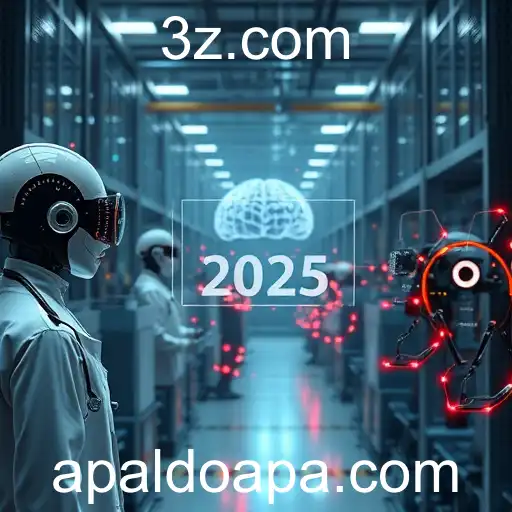
Exploring the vast transformations brought by AI in 2025, touching upon economic, environmental, and societal dynamics.
In 2025, artificial intelligence (AI) continues to redefine industries worldwide by streamlining processes and fostering innovation. The integration of AI technologies has led to unprecedented growth in sectors such as healthcare, finance, and manufacturing. Amidst this revolution, the economic landscape evolves as AI introduces new efficiencies while simultaneously challenging existing job structures.
In healthcare, AI has transformed patient diagnosis and care by enhancing the accuracy of medical imaging and streamlining administrative tasks. The efficient analysis of vast datasets enables early detection of diseases, significantly improving patient outcomes. Moreover, AI-driven personalized medicine tailors treatments to individual genetic profiles, marking a new era in healthcare.
The financial industry has also witnessed remarkable changes, with AI providing real-time insights into market trends and reducing risks through enhanced fraud detection systems. Automated trading algorithms and robo-advisors democratize access to financial services, yet these advancements raise ethical questions regarding transparency and accountability.
Manufacturing has embraced AI to optimize production lines and supply chain management. Robotics powered by AI increases productivity and quality, although it recasts the role of human labor. The workforce is urged to evolve, developing new skills to work alongside advanced technologies.
On the global stage, AI technologies' rapid advancement also raises concerns about data privacy, security, and ethical governance. Countries worldwide draft regulations to address these challenges, striving to balance innovation with personal freedoms. Meanwhile, the environmental implications of AI growth spotlight sustainability, as energy consumption by data centers pushes industries to seek greener alternatives.
The societal impact of AI extends beyond the economy. Educational systems globally adapt, introducing new curriculums to prepare the future workforce for AI-centric careers. Additionally, AI algorithms play significant roles in shaping public opinion and societal trends, their influence on media and communication undeniable.
As we venture deeper into 2025, the dynamics of AI-driven transformations underscore a critical juncture for humanity. Stakeholders across industries are tasked with navigating complex ethical landscapes while harnessing AI's potential. This journey invites diverse commentary and analysis as the world embraces a future woven by the threads of AI innovation, emphasizing the need for sustainable development, collaborative governance, and conscious adaptation.




